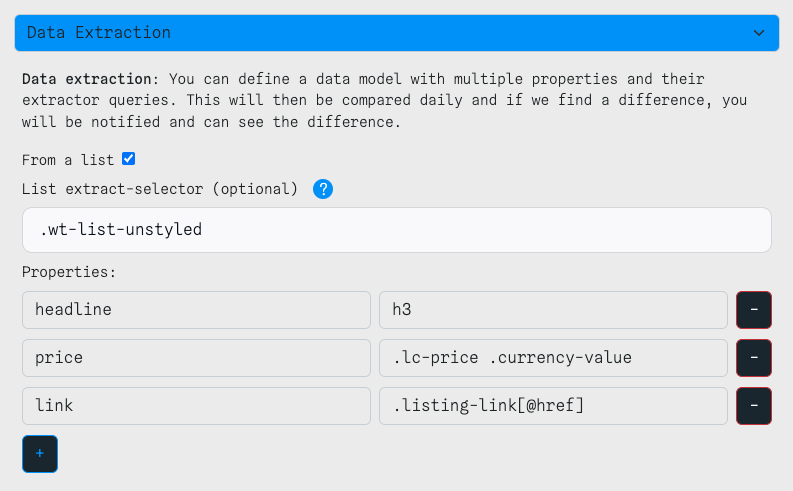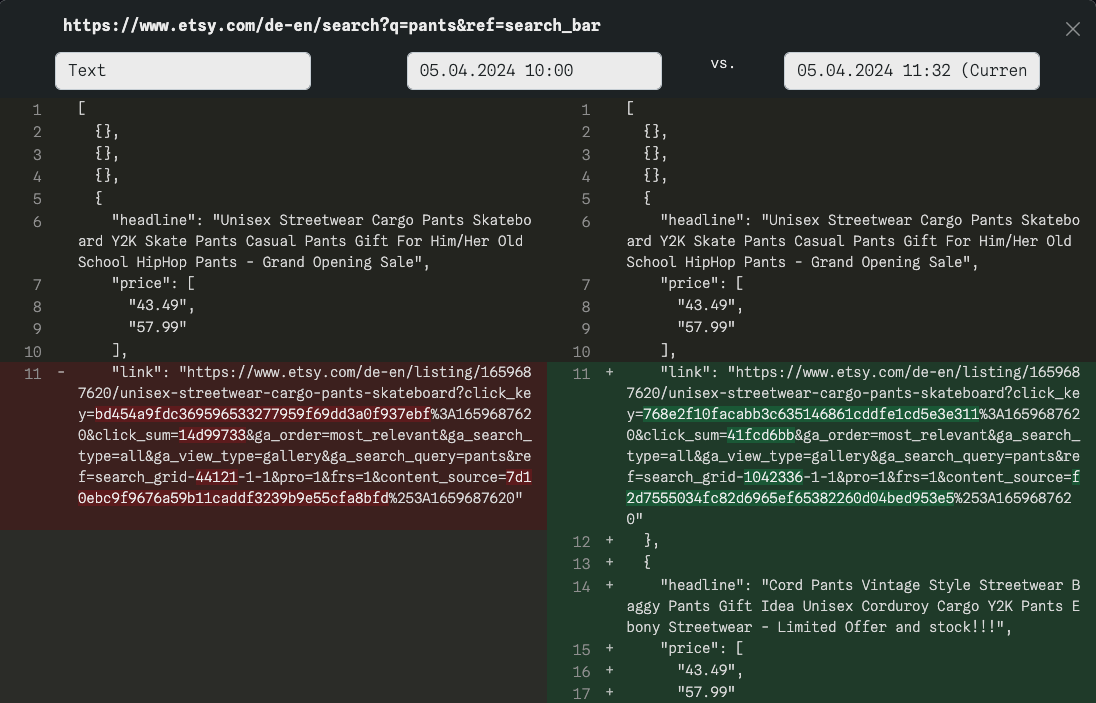Data Extraction With Change Alerts
Data extraction represents a powerful approach for receiving web page change alerts that goes beyond traditional textual and visual detection methods. This advanced feature enables the precise extraction of data from web pages and turns it into actionable insights that are stored in JSON format.
Web Page Change Alerts For Extracted Data
Processing web content into usable, structured data in order to collect precise information from various web sources. You get web page change alerts for every change in the extracted data.
- CSS Selector Mapping
Specify CSS selectors for elements you wish to extract from a webpage, turning unstructured web data into a neatly organized JSON format.- Array Iterator Selector
To extract lists and their properties, ScrapX provides an array iterator selector. This functionality is perfect for aggregating data such as product lists, item indexes or any set of repeating elements with consistency on a web page.- Webhook Integration
Receive daily updates with extracted data that is sent directly to your systems via webhooks. This feature allows you to feed data into your applications and ensures that you always have the latest information available without having to intervene manually. [Learn more]- Http Headers
We enable the customization of HTTP headers, including cookie, accept or API keys, so that you can send certain Apikeys in the header, for example.


Use Cases
Data is king
Use our Data Extraction feature to convert web chaos into structured, actionable intelligence and get web page change alerts.
- Competitor Price Monitoring.
- Use the possibilities of data extraction to keep an eye on your competitors' pricing strategies. By extracting pricing information, you can adapt your pricing models to remain competitive in the market.
- Content Aggregation.
- Compile news articles, blog posts or other web content that is relevant to your niche. ScrapX simplifies the process of curating content from multiple sources and improves your content marketing efforts.
- Market Research.
- Collect data from multiple sources to support your market research. Extract customer reviews, product specifications or industry news to gain insights into market trends and consumer preferences.
- SEO Monitoring.
- Track changes to metadata, headings or the use of keywords on your own websites or those of your competitors. This data is crucial for optimizing your SEO strategy and improving your search engine ranking.
- Product Development.
- By analyzing customer feedback and product descriptions in your industry, you can identify market gaps and innovation opportunities. Data extraction provides the necessary insights to guide your product development process.
- Social Media Analysis.
- Extract user-generated content from social media platforms to measure public sentiment, identify hot topics or monitor brand mentions. This information is key to refining your social media strategy and engaging effectively with your audience.
Frequently Asked Questions
Stay in the know.Start monitoring today.
Save time and get notified of the important changes your team or you need. It's free to get started.
Start Free Monitoring